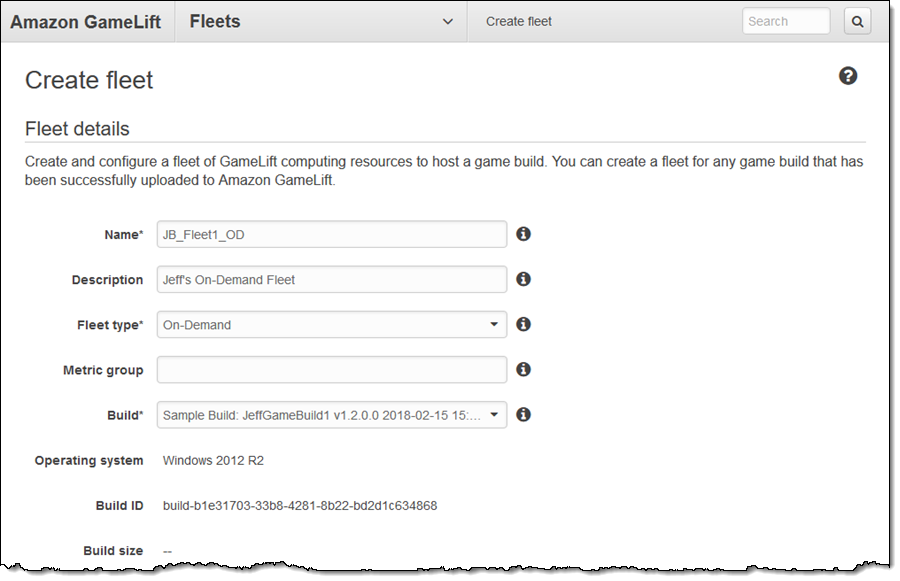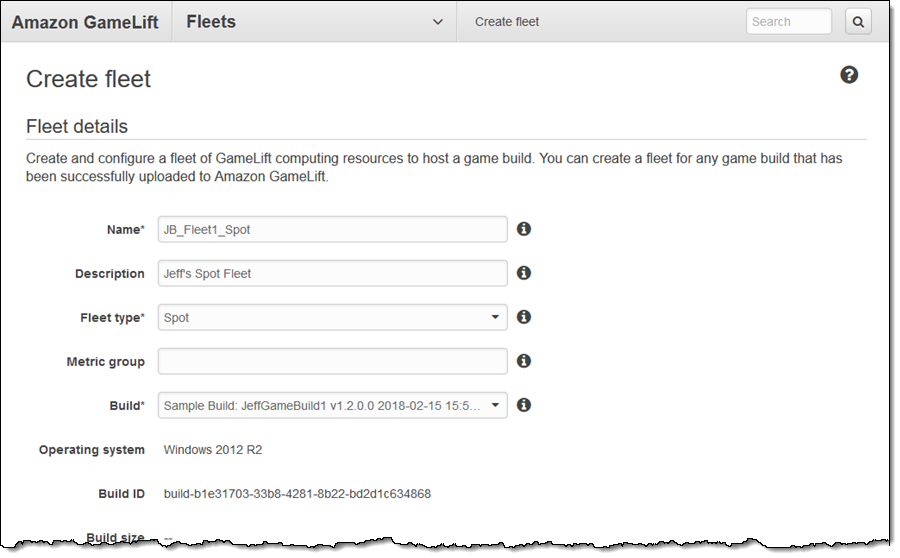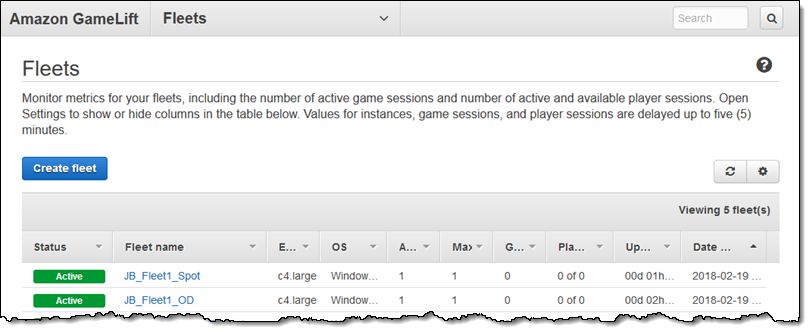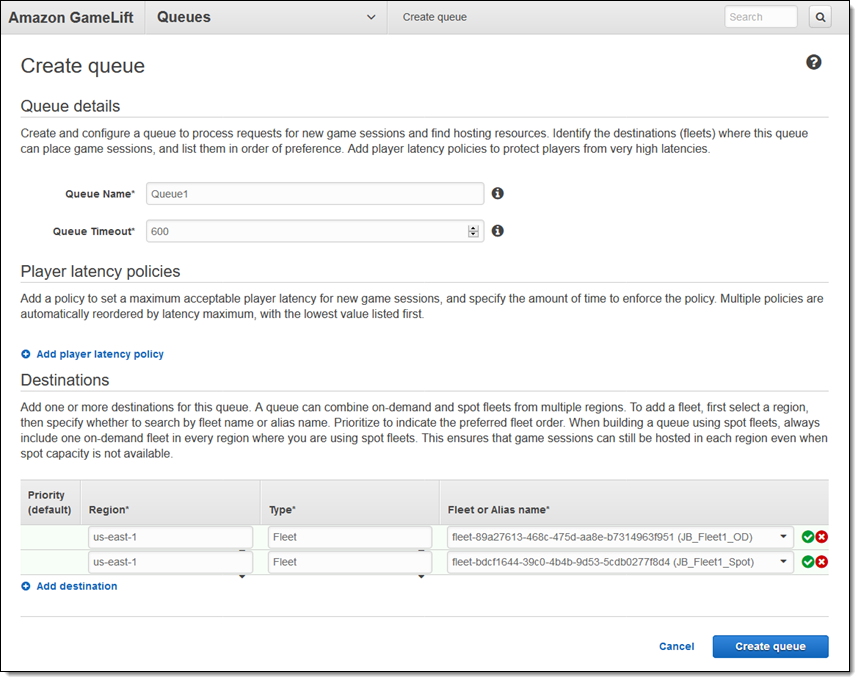AWS News Blog
Amazon GameLift FleetIQ and Spot Instances – Save up to 90% On Game Server Hosting
Amazon GameLift is a scalable, cloud-based runtime environment for session-based multiplayer games. You simply upload a build of your game, tell Amazon GameLift which type of EC2 instances you’d like to host it on, and sit back while Amazon GameLift takes care of setting up sessions and maintaining a suitably-sized fleet of EC2 instances. This automatic scaling allows you to accommodate demand that varies over time without having to keep compute resources in reserve during quiet periods.
Use Spot Instances
Last week we added a new feature to further decrease your per-player, per-hour costs when you host your game on Amazon GameLift. Before that launch, Amazon GameLift instances were always launched in On-Demand form. Instances of this type are always billed at fixed prices, as detailed on the Amazon GameLift Pricing page.
You can now make use Amazon GameLift Spot Instances in your GameLift fleets. These instances represent unused capacity and have prices that rise and fall over time. While your results will vary, you may see savings of up to 90% when compared to On-Demand Instances.
While you can use Spot Instances as a simple money-saving tool, there are other interesting use cases as well. Every game has a life cycle, along with a cadre of loyal players who want to keep on playing until you finally unplug and decommission the servers. You could create an Amazon GameLift fleet comprised of low-cost Spot Instances and keep that beloved game up and running as long as possible without breaking the bank. Behind the scenes, an Amazon GameLift Queue will make use of both Spot and On-Demand Instances, balancing price and availability in an attempt to give you the best possible service at the lowest price.
As I mentioned earlier, Spot Instances represent capacity that is not in use by On-Demand Instances. When this capacity decreases, existing Spot Instances could be interrupted with two minutes of notification and then terminated. Fortunately, there’s a lot of capacity and terminations are, statistically speaking, quite rare. To reduce the frequency even further, Amazon GameLift Queues now include a new feature that we call FleetIQ.
FleetIQ is powered by historical pricing and termination data for Spot Instances. This data, in combination with a very conservative strategy for choosing instance types, further reduces the odds that any particular game will be notified and then interrupted. The onProcessTerminate callback in your game’s server process will be activated if the underlying Spot Instance is about to be interrupted. At that point you have two minutes to close out the game, save any logs, free up any resources, and otherwise wrap things up. While you are doing this, you can call GetTerminationTime to see how much time remains.
Creating a Fleet
To take advantage of Spot Instances and FleetIQ, you can use the Amazon GameLift console or API to set up Queues with multiple fleets of Spot and On-Demand Instances. By adding more fleets into each Queue, you give FleetIQ more options to improve latency, interruption rate, and cost. To start a new game session on an instance, FleetIQ first selects the region with the lowest latency for each player, then chooses the fleet with the lowest interruption rate and cost.
Let’s walk through the process. I’ll create a fleet of On-Demand Instances and a fleet of Spot Instances, in that order:

And:

I take a quick break while the fleets are validated and activated:

Then I create a queue for my game. I select the fleets as the destinations for the queue:

If I am building a game that will have a global user base, I can create fleets in additional AWS Regions and use a player latency policy so that game sessions will be created in a suitable region:

To learn more about how to use this feature, take a look at the Spot Fleet Integration Guide.
Now Available
You can use Amazon GameLift Spot Instance fleets to host your session-based games now! Take a look, give it a try, and let me know what you think.
If you are planning to attend GDC this year, be sure to swing by booth 1001. Check out our GDC 2018 site for more information on our dev day talks, classroom sessions, and in-booth demos.
— Jeff;